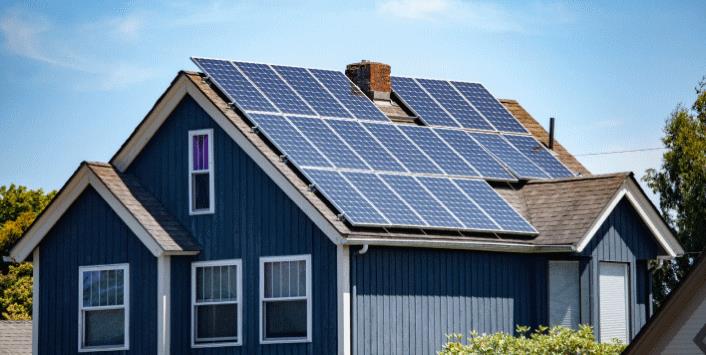
In today's world, the importance of leading a sustainable lifestyle cannot be overstated. As individuals, we have the power to make a positive impact on the environment by adopting simple yet effective practices.
This article presents 10 actionable steps to help you transition towards a more sustainable lifestyle. From reducing energy consumption to embracing eco-friendly travel, each step is carefully curated to empower you with the knowledge and tools needed to contribute to a greener future.
It's time to take charge and make a difference.
Reducing Energy Use
Reducing energy consumption is a crucial step towards achieving a more sustainable lifestyle. One effective way to achieve this is by using energy-efficient appliances. These appliances are designed to minimize the amount of energy they consume while still providing the same level of functionality. By replacing old, inefficient appliances with energy-efficient ones, you can significantly reduce your overall energy usage and contribute to a greener future.
Another aspect of reducing energy use is adopting sustainable transportation practices. Instead of relying heavily on fossil fuel-powered vehicles, consider alternative modes of transportation such as walking, cycling, or using public transportation. If a car is necessary, opt for electric or hybrid vehicles that produce fewer emissions and require less energy to operate.
Minimizing Waste
To further enhance the sustainability of your lifestyle, it is essential to minimize waste through efficient resource management and conscious consumption habits.
One way to achieve this is by embracing zero waste living, which aims to send no waste to landfills. Start by reducing single-use items like plastic bags and water bottles. Opt for reusable alternatives such as cloth bags and stainless steel bottles.

Additionally, practice recycling and composting to divert waste from landfills. Another aspect of minimizing waste is choosing sustainable packaging. Look for products that use minimal packaging or packaging made from recycled materials. You can also support businesses that prioritize eco-friendly packaging.
Plant-Based Diet
A plant-based diet is not only beneficial for one's health but also has a positive environmental impact. By consuming more plant-based foods and reducing the intake of animal products, individuals can lower their risk of chronic diseases and improve overall well-being.
Transitioning to a plant-based diet can be achieved by incorporating more fruits, vegetables, whole grains, and legumes into meals while gradually reducing the consumption of meat and dairy products.
Health Benefits of Plant-Based Diet
Implementing a plant-based diet can enhance overall well-being and contribute to a more sustainable lifestyle. A plant-based diet focuses on consuming whole foods derived from plants, such as fruits, vegetables, nuts, seeds, and grains, while minimizing or eliminating animal products.
This dietary choice has numerous health benefits, including a reduced risk of chronic diseases like heart disease, obesity, and type 2 diabetes. Plant-based diets are typically rich in fiber, vitamins, and minerals, which support a healthy immune system and promote optimal digestion.
Additionally, by choosing plant-based foods, individuals indirectly support sustainable farming practices. Plant-based diets require less land, water, and resources compared to animal-based diets, making them more environmentally friendly.
Environmental Impact of Plant-Based Diet
One key aspect to consider when adopting a plant-based diet is its significant environmental impact. By reducing or eliminating the consumption of animal products, individuals can greatly reduce their carbon footprint and promote environmental sustainability. Here are a few reasons why a plant-based diet is environmentally beneficial:

- Reduced greenhouse gas emissions: Animal agriculture is a major contributor to greenhouse gas emissions, particularly methane and nitrous oxide. By choosing plant-based alternatives, individuals can help reduce these emissions and combat climate change.
- Conservation of resources: Producing animal-based foods requires large amounts of water, land, and energy. Plant-based diets are more efficient, as they require fewer resources to produce the same amount of food.
- Protection of biodiversity: Animal agriculture is a leading cause of deforestation, habitat loss, and species extinction. By opting for plant-based alternatives, individuals can help preserve biodiversity and protect fragile ecosystems.
Tips for Transitioning to Plant-Based Diet
To successfully transition to a plant-based diet, individuals should consider incorporating a variety of nutritious plant-based foods into their meals. While this may seem challenging at first, there are several tips that can help make the transition easier.
One of the main challenges of transitioning to a plant-based diet is finding satisfying and delicious alternatives to meat and dairy products. Fortunately, there are numerous vegan recipes available that can provide the flavors and textures that people are accustomed to. Experimenting with different recipes and ingredients can help individuals discover new and exciting plant-based dishes.
Additionally, it is important to focus on getting a variety of nutrients from different plant-based sources, such as legumes, whole grains, fruits, and vegetables. By gradually incorporating more plant-based foods into their diet and exploring new recipes, individuals can successfully transition to a plant-based lifestyle.
Composting
Composting is a practical and effective means of recycling organic waste into nutrient-rich soil. By composting, you can reduce waste, save money on fertilizers, and contribute to a more sustainable lifestyle. Here are some benefits and techniques to get started:
Benefits of Composting:
- Reduces landfill waste and methane emissions
- Improves soil health and fertility
- Enhances water retention and drainage
- Reduces the need for chemical fertilizers
Composting Techniques:
- Choose a composting method: There are various options, such as traditional composting bins, vermicomposting (using worms), or compost tumblers.
- Collect organic waste: Include fruit and vegetable scraps, coffee grounds, tea leaves, eggshells, and yard waste.
- Create a balanced compost pile: Layer green (nitrogen-rich) and brown (carbon-rich) materials, ensuring proper moisture and aeration.
- Turn the pile regularly: This helps speed up decomposition and prevents odors.
- Harvest and use compost: Once the materials have decomposed into dark, crumbly soil, spread it in your garden or use it as potting soil.
Carpooling or Cycling
Carpooling or cycling is another effective means of reducing carbon emissions and promoting sustainable transportation practices.

Carpooling, or sharing a ride with others traveling in the same direction, has numerous benefits. It not only reduces the number of vehicles on the road but also saves money on fuel and parking costs. Additionally, carpooling fosters social connections, as it allows people to interact and build relationships with their co-passengers.
On the other hand, cycling offers several advantages as well. It is a great form of exercise, improves cardiovascular health, and helps reduce traffic congestion. Cycling also requires minimal resources and produces zero carbon emissions, making it an eco-friendly alternative to driving.
Another sustainable practice that can be incorporated into a more eco-friendly lifestyle is thrift shopping, which promotes the reuse and repurposing of clothing and other items. By engaging in sustainable fashion and secondhand shopping, individuals can reduce their environmental impact and contribute to a more circular economy.
Here are some reasons to consider thrift shopping:
- Reduces waste: Buying secondhand items prevents them from ending up in landfills, reducing waste and minimizing the need for new production.
- Saves money: Thrift shopping allows you to find unique and affordable items at a fraction of the cost of buying new.
- Supports local communities: Many thrift shops are run by nonprofit organizations, which use the proceeds to fund community programs.
- Encourages individual style: Thrift shopping offers a wide variety of clothing styles, allowing individuals to express their unique fashion sense.
Homemade Natural Products
To further embrace a sustainable lifestyle, consider creating your own homemade natural products. Making your own natural beauty products and homemade cleaning supplies is not only cost-effective but also environmentally friendly. By using simple ingredients such as essential oils, vinegar, baking soda, and lemon juice, you can create a wide range of products that are free from harmful chemicals.
For natural beauty products, you can make your own facial scrubs, masks, and moisturizers using ingredients like coconut oil, honey, and oatmeal. When it comes to cleaning supplies, vinegar and baking soda can be used to make an all-purpose cleaner, while lemon juice can be used to remove stains and odors.
Water-Saving Practices
To extend the focus on sustainability, incorporating water-saving practices is essential for conserving this vital resource. Here are some actionable steps you can take to save water at home:

- Install water-efficient fixtures: Replace old faucets, showerheads, and toilets with low-flow alternatives to reduce water usage.
- Fix leaks promptly: Leaky faucets and pipes can waste a significant amount of water. Regularly check for leaks and repair them immediately.
- Practice smart irrigation: Water your plants and lawn during the early morning or late evening to prevent evaporation. Consider using a drip irrigation system for more efficient water distribution.
- Collect rainwater: Install rain barrels or tanks to collect rainwater, which can be used for watering plants or cleaning purposes.
Renewable Energy
Renewable energy is a crucial aspect of a sustainable lifestyle.
Solar power offers numerous benefits, including reduced dependence on fossil fuels and lower electricity bills.
Wind energy plays an important role in reducing greenhouse gas emissions and creating clean, renewable power.
Additionally, biomass can be used as a renewable fuel source, helping to reduce reliance on non-renewable resources.
Incorporating these renewable energy sources into our daily lives is a practical and impactful way to contribute to a more sustainable future.
Solar Power Benefits
Solar power offers numerous benefits as a renewable energy source. It significantly reduces reliance on fossil fuels and decreases carbon emissions. Here are some key advantages of solar power:
- Cost savings: Solar power installation can help homeowners and businesses save money on their electricity bills in the long run. By generating electricity from sunlight, they can reduce their dependence on traditional energy sources and potentially eliminate or greatly reduce their monthly utility bills.
- Environmental impact: Solar power is a clean and renewable energy source, meaning it doesn't produce harmful emissions that contribute to air pollution and climate change. By switching to solar power, individuals and communities can play a significant role in reducing their carbon footprint and preserving the environment.
- Incentives and rebates: Many governments and organizations offer various solar power incentives, such as tax credits and rebates, to encourage the adoption of renewable energy. These incentives can help offset the initial cost of installing solar panels and make it more accessible for individuals to go solar.
Wind Energy Importance
The importance of wind energy as a renewable resource cannot be overstated. Wind energy, generated through wind turbines, is a clean and sustainable source of power that can significantly reduce our reliance on fossil fuels.

One of the key benefits of wind energy is its wide range of applications. It can be used for electricity generation, powering homes and businesses, and even for water pumping and irrigation in remote areas.
Wind turbines have also greatly increased their efficiency over the years, thanks to technological advancements in design and materials. This means that more energy can be harnessed from the wind, making wind power a viable and cost-effective option for meeting our energy needs.
Biomass as Renewable Fuel
One important source of renewable energy that complements wind power is biomass fuel. Biomass refers to organic materials like plants, trees, and agricultural waste that can be converted into fuel. Here are some key points about biomass as a renewable fuel:
- Biomass is considered carbon-neutral because the carbon dioxide released during its combustion is offset by the carbon dioxide absorbed by the plants during their growth.
- Biomass can be used to generate heat and electricity, making it versatile for various energy needs.
- Biomass can be produced sustainably, ensuring a continuous supply of renewable fuel.
- Biomass can help reduce dependence on fossil fuels and contribute to a cleaner and greener energy future.
- By utilizing biomass as a renewable energy source, we can play a part in achieving carbon neutrality and mitigating climate change.
Considering the benefits of biomass as a renewable fuel, it is worth exploring its potential as a sustainable energy solution.
Eco-Friendly Travel
By incorporating sustainable practices, travelers can minimize their environmental impact and contribute to the preservation of natural resources. One way to achieve this is through sustainable packing. This involves using reusable bags, packing light to reduce fuel consumption, and choosing eco-friendly toiletries and products.
Additionally, opting for eco-conscious accommodation can greatly reduce the ecological footprint of your travels. Look for accommodations that prioritize energy and water conservation, waste reduction and recycling, and support local communities. Consider staying in eco-lodges, hotels with green certifications, or even exploring alternative options like camping or homestays.
Frequently Asked Questions
How Can I Reduce Energy Use in My Home Without Investing in Expensive Solar Panels or Energy-Efficient Appliances?
Energy saving habits and cost-effective conservation strategies are available to reduce energy use in your home without investing in expensive solar panels or energy-efficient appliances. Implementing simple changes like turning off lights when not in use and using natural lighting can make a significant impact.

What Are Some Creative Ways to Minimize Waste in My Daily Life Beyond Recycling and Composting?
Creative ways to minimize waste in daily life include upcycling ideas, such as repurposing old items into new ones, and zero waste grocery shopping tips, like bringing reusable bags and buying in bulk. These practices contribute to a more sustainable lifestyle.
How Can I Transition to a Plant-Based Diet Without Feeling Overwhelmed or Deprived of My Favorite Foods?
Transitioning to a plant-based diet can be achieved without feeling overwhelmed or deprived of favorite foods. By implementing transition strategies and exploring plant-based recipes, individuals can enjoy a more sustainable and fulfilling dietary lifestyle.
What Are the Benefits of Composting and How Can I Start My Own Composting System at Home?
Composting offers numerous benefits, including reducing waste, enriching soil, and promoting healthier plants. To start your own composting system at home, follow these steps: choose a composting method, gather organic materials, maintain the compost, and enjoy the results.
How Can I Make Carpooling or Cycling a More Convenient and Practical Option for My Daily Commute?
To make carpooling or cycling more convenient and practical for your daily commute, consider the benefits of carpooling such as reduced traffic congestion and cost savings, and advocate for cycling infrastructure improvements to ensure safety and accessibility for cyclists.
 Family Craft ProjectsHome ImprovementCooking and BakingReuse and RecycleDIY GiftsEco-Friendly ProjectsDIY Home SolutionsSeasonal ActivitiesFun and GamesLearn TogetherPrivacy PolicyTerms And Conditions
Family Craft ProjectsHome ImprovementCooking and BakingReuse and RecycleDIY GiftsEco-Friendly ProjectsDIY Home SolutionsSeasonal ActivitiesFun and GamesLearn TogetherPrivacy PolicyTerms And Conditions

 Family Craft ProjectsHome ImprovementCooking and BakingReuse and RecycleDIY GiftsEco-Friendly ProjectsDIY Home SolutionsSeasonal ActivitiesFun and GamesLearn TogetherPrivacy PolicyTerms And Conditions
Family Craft ProjectsHome ImprovementCooking and BakingReuse and RecycleDIY GiftsEco-Friendly ProjectsDIY Home SolutionsSeasonal ActivitiesFun and GamesLearn TogetherPrivacy PolicyTerms And Conditions
